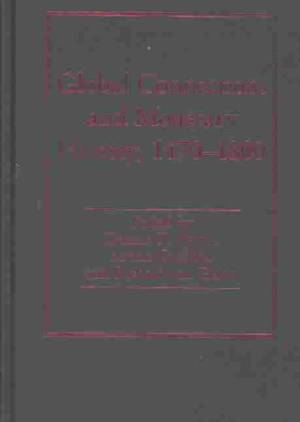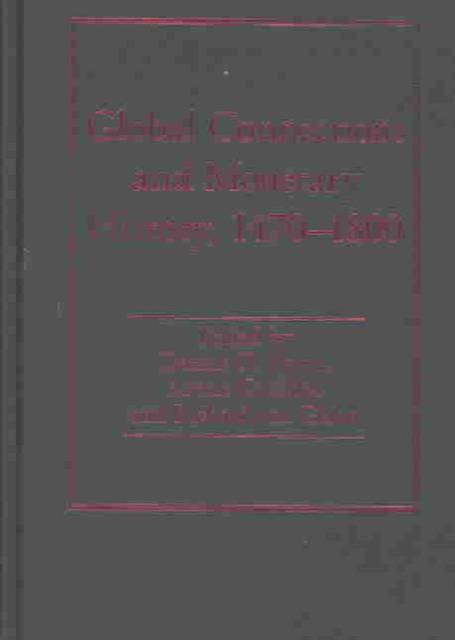
Bedankt voor het vertrouwen het afgelopen jaar! Om jou te bedanken bieden we GRATIS verzending (in België) aan op alles gedurende de hele maand januari.
- Afhalen na 1 uur in een winkel met voorraad
- In januari gratis thuislevering in België
- Ruim aanbod met 7 miljoen producten
Bedankt voor het vertrouwen het afgelopen jaar! Om jou te bedanken bieden we GRATIS verzending (in België) aan op alles gedurende de hele maand januari.
- Afhalen na 1 uur in een winkel met voorraad
- In januari gratis thuislevering in België
- Ruim aanbod met 7 miljoen producten
Zoeken
Global Connections and Monetary History, 1470-1800
Dennis O Flynn, Arturo Giraldez
Hardcover | Engels
€ 146,95
+ 293 punten
Omschrijving
The aim of this volume is to explore international flows of metals and monies, especially silver, in the period from the mid-15th century to 1800. The impact of economic and technological factors on mining output is a second important theme. Discussion begins with the late-medieval Central European silver boom that peaked in the 1530s, noting that European silver flowed to Asian markets via Venetian and other merchants. Next follows a major study of the European trade via the Cape of Good Hope, which for the first time attempts to estimate aggregate trade figures for this route. European Cape traders are viewed as a group; steady growth in the Cape trade alone was responsible for sending off 2 million European sailors for Asian waters. The next papers provide new looks at Spanish American precious metal production during the 18th century, and at the magnitude and destination of exports. Attention then turns toward Asia, with discussion first of the Ottoman role in the global silver trade, with the decline in Ottoman silver production in the Balkans by the 1640s, and the re-export of American silver to Asia. Two studies examine the routes for the import of silver into India; both land and sea routes maintained importance in the 18th century, as did Indian (as opposed to European) merchants. Japanese silver exports to both China and India, in the context of the developing Tokugawa monetary system, are considered next. The final paper focuses on China, the world's dominant end-user of silver throughout the early modern period, a global sink that is best understood in terms of powerful demand-side forces that arose domestically in the private sector. All but one of the papers were presented at the 12th International Economic History Conference in 1998, but have now been revised and elaborated, often extensively, or translated, and are joined by the major new study by Jan de Vries on the volume of commerce via the Cape Route. Together, these studies constitute a major step forward in understanding global - as opposed to national - connections throughout the early modern world.
Specificaties
Betrokkenen
- Auteur(s):
- Uitgeverij:
Inhoud
- Aantal bladzijden:
- 224
- Taal:
- Engels
Eigenschappen
- Productcode (EAN):
- 9780754632139
- Verschijningsdatum:
- 28/07/2003
- Uitvoering:
- Hardcover
- Formaat:
- Genaaid
- Afmetingen:
- 156 mm x 234 mm
- Gewicht:
- 462 g

Alleen bij Standaard Boekhandel
+ 293 punten op je klantenkaart van Standaard Boekhandel
Beoordelingen
We publiceren alleen reviews die voldoen aan de voorwaarden voor reviews. Bekijk onze voorwaarden voor reviews.









